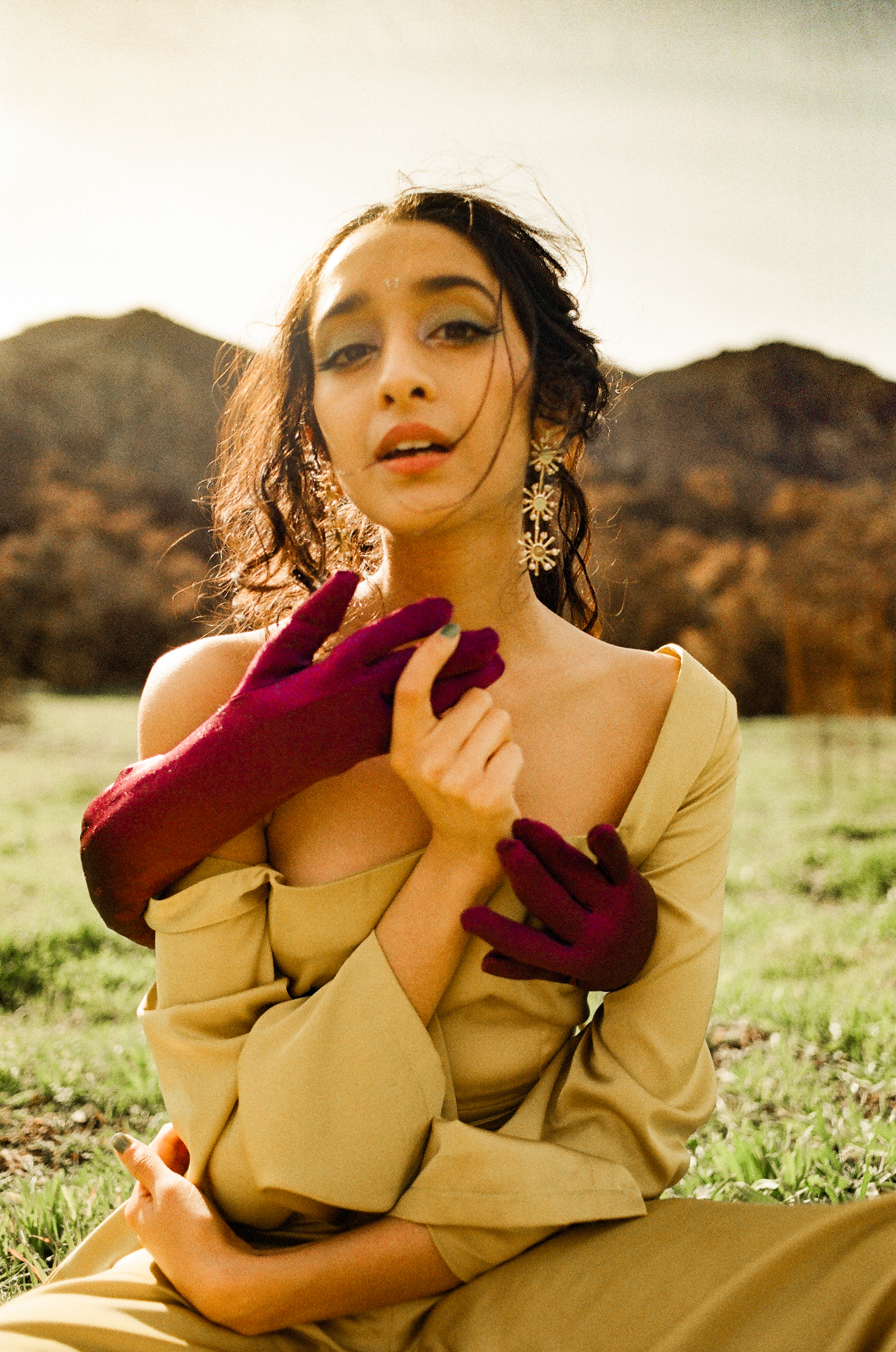Story by Zoe Yu Gilligan
Photos by Dana Trippe
Styling by Branden Ruiz
Makeup by Kiriko Kajiwara
Hair by Francesca Fataar
The concept of finding light in the darkness comes to mind whenever I listen to the R&B and neo-soul songs of Raveena. The Indian-American songstress’ soft candor is a healing embrace, supported by delicate vocals and vivid visuals, and serves as a sanctuary of warmth and empowerment for women of color and queer folks. With a handful of hit singles and a powerful EP, “Shanti” (2017), Raveena’s only just begun sharing her philosophy with the world—that survivors are more than their pasts and that there is life beyond pain. I chatted with the New York artist in February about her new album, “Lucid” (2019), Asian-American women in music, healing and spirituality, her creative process, love as a verb, and of course, obsession.
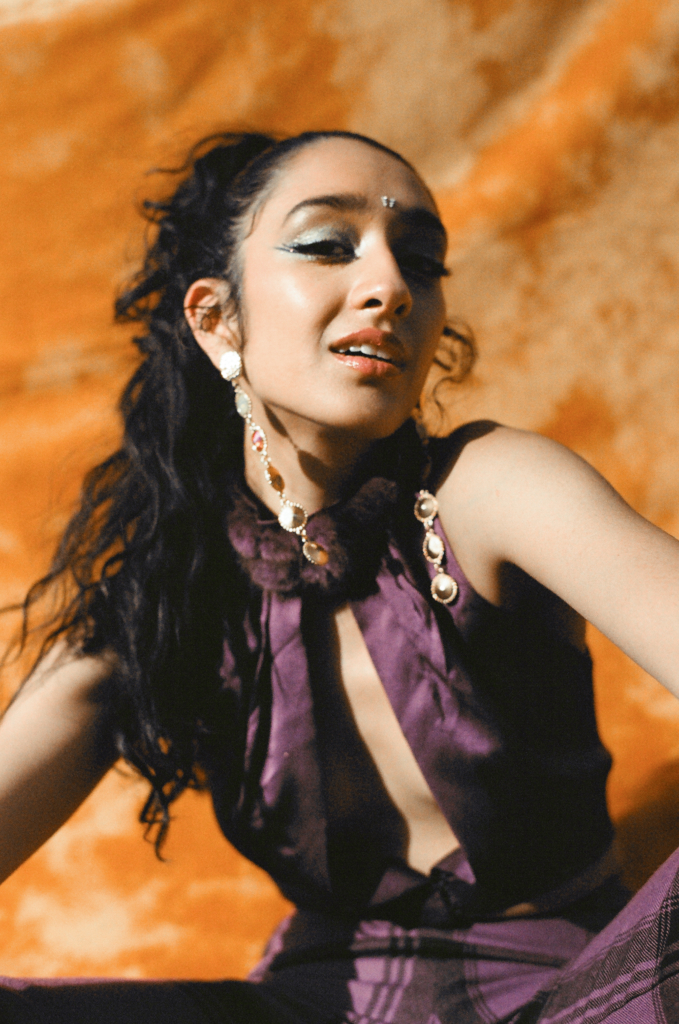
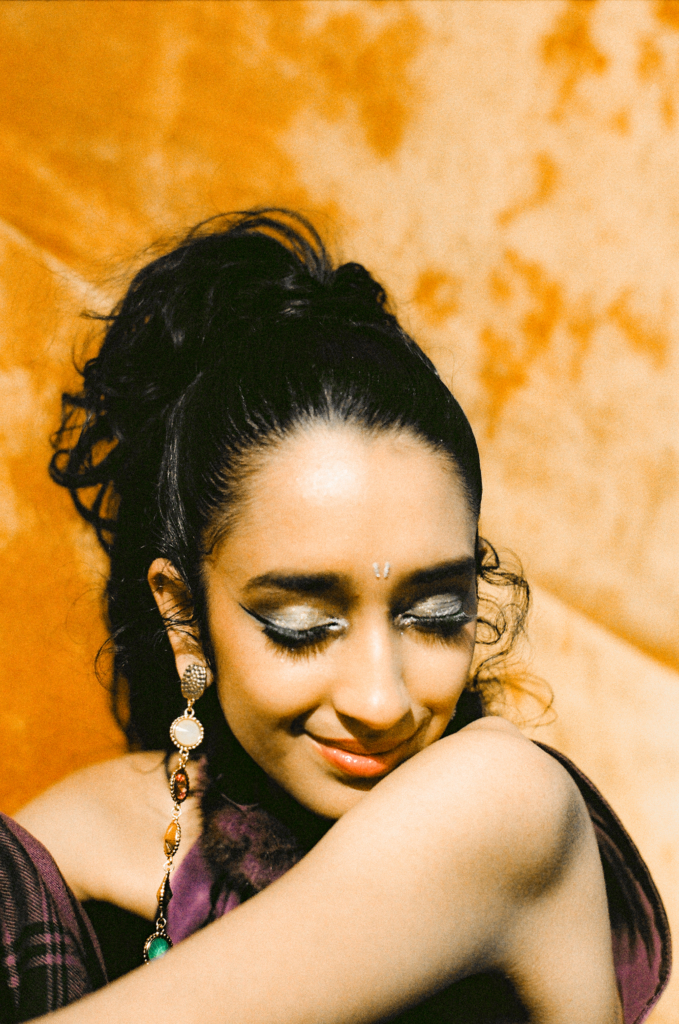
Zoe Yu Gilligan: Hi Raveena! Thanks for sitting down to chat with me. How are you? How is your heart?
Ravenna: I’m really good. It’s good. I’ve been under a lot of stress recently, but overall I’m just trying to be good to it and take care of it [laughs].
ZYG: So, tell us a bit about how you got into music in the first place.
R: I started singing when I was ten or eleven [years-old] and I was just kinda hooked. I think I decided I was gonna be a singer probably around when I was twelve, and the songwriting came when I was sixteen.
ZYG: It’s frowned upon in many Asian households to pursue a career in the arts. Would you say that your parents have always been supportive of your decision to pursue music?
R: I definitely felt a pushback. But they were never super strict in the way of not letting me sing around the house or not encouraging me to take classes. Once they saw how connected and kind of stubborn I was about pursuing it, I think they naturally adapted to it. They’re very supportive.
ZYG: In terms of Asian women in music in the West, there just aren’t that many on mainstream charts or platforms, save a few well-known ones, like Mitski, Japanese Breakfast, and Jhene Aiko. Would you say that there have been a lot of barriers for you within the music industry? If so, what kind of barriers?
R: The fact that there’s only a handful just from the whole Asian continent of that diaspora that we can name is really sad. I think that we just need to support all types of Asians, because the more of us there are, the more support we get. It’s just natural to support people who look like you, and obviously we can support anybody of any background, but I think there’s something to be said about people in the industry who are making the decisions—you know, the kind of decisions that help you get your music out there. It really helps for them to see that there’s Asian representation in music, and that it works, because it’s important for them to know that their investment will be in something that works.
Throughout my career in music, there’s always been this question of, “will there be a market for you?” Some [labels] have said that because I’m Indian, they couldn’t sign me.
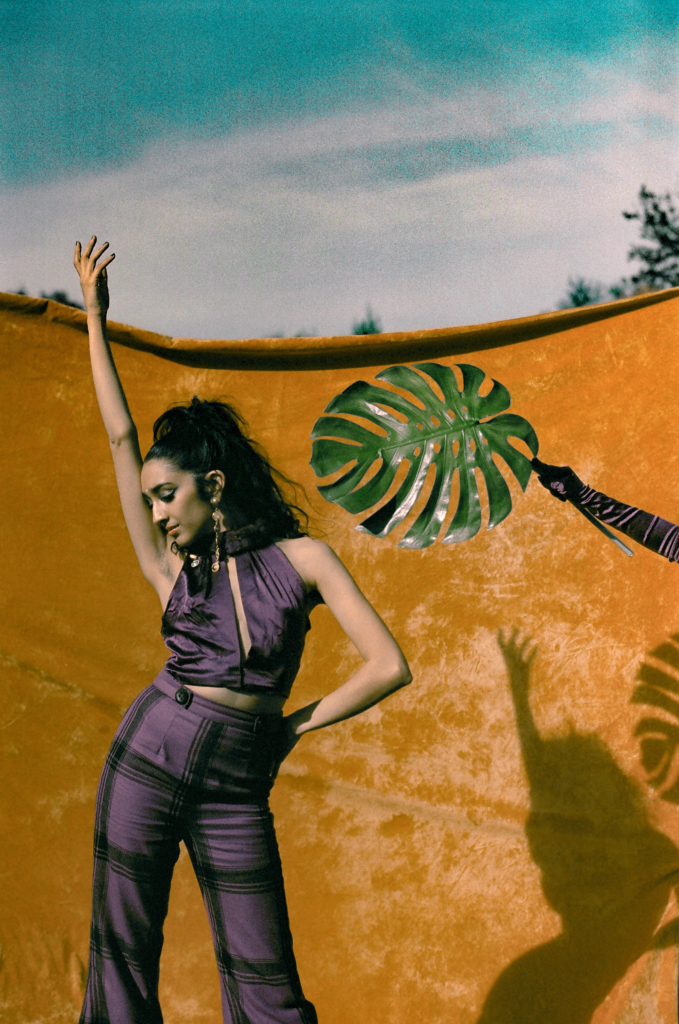
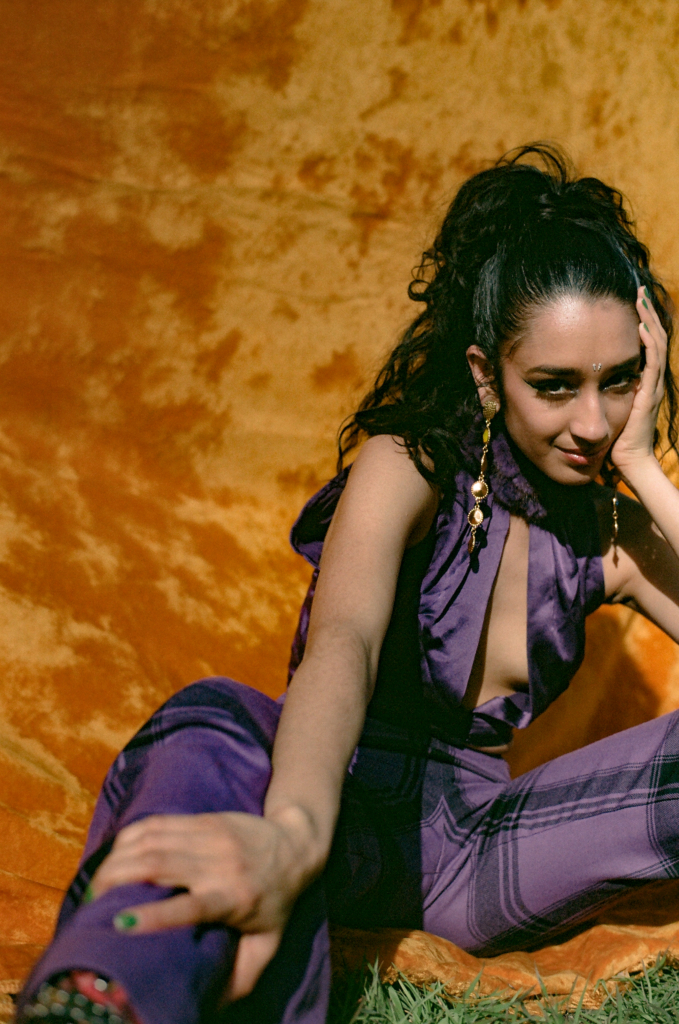
ZYG: It’s almost unbelievable to think about somebody actually saying that. You are really, truly breaking boundaries just by being yourself.
R: Finally now, post-Trump [election], there’s actually more space for people of color in the arts because a lot of people are concerned with representation in the media. There are a lot of upcoming Asian artists at this time and it’s awesome to see. It’s really important to break those boundaries, because it will give somebody else an easier time, especially to be more experimental with what they’re doing.
ZYG: From your perspective as a queer Brown woman in the music industry, how do we move forward from abuses done by those in power who are almost never held accountable?
R: I think we absolutely have a responsibility to survivors and their stories. Whether they feel comfortable or not to put their stories out into the world, because I completely understand how triggering it can be to do that, it’s okay. We just need to continue to have this conversation. It’s too detrimental to the way women are treated. There are a lot of people from a different generation with a different mindset that don’t understand what is so incredibly wrong about taking advantage of your power, or using young women to get what you want out of them sexually.
As women, we obviously have the responsibility to keep talking about this, for survivors, and to give them a space to heal, but men also have the responsibility, too. I think they’re starting to realize how incredibly common this is in the industry, so we really just can’t let the conversation stop. There needs to be accountability for those who go out there and abuse people.
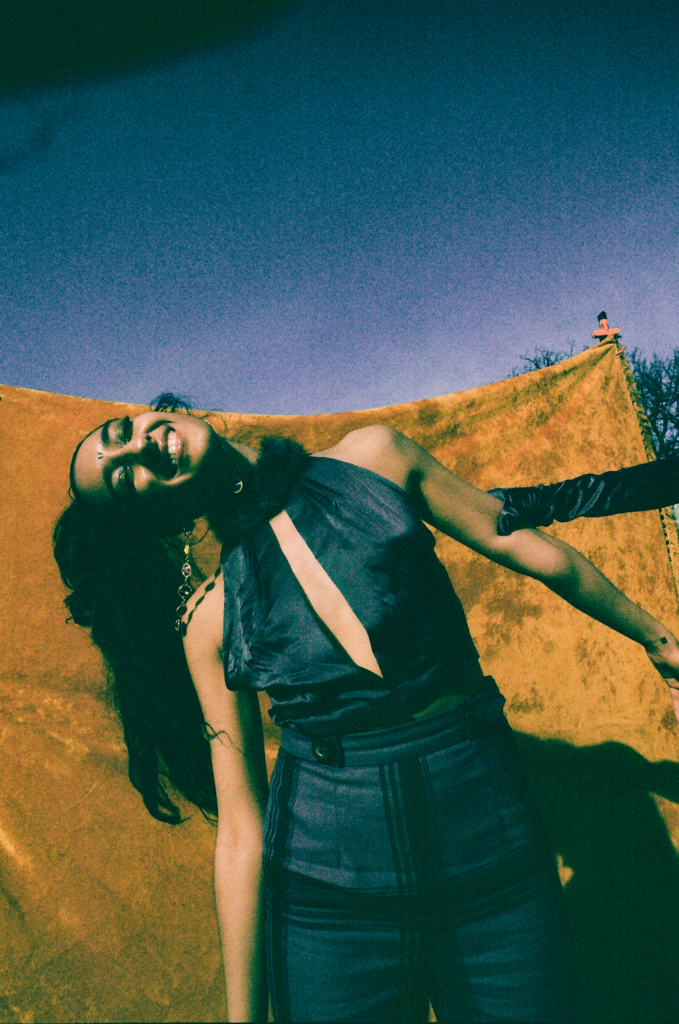
ZYG: So how do you heal? What does healing mean to you?
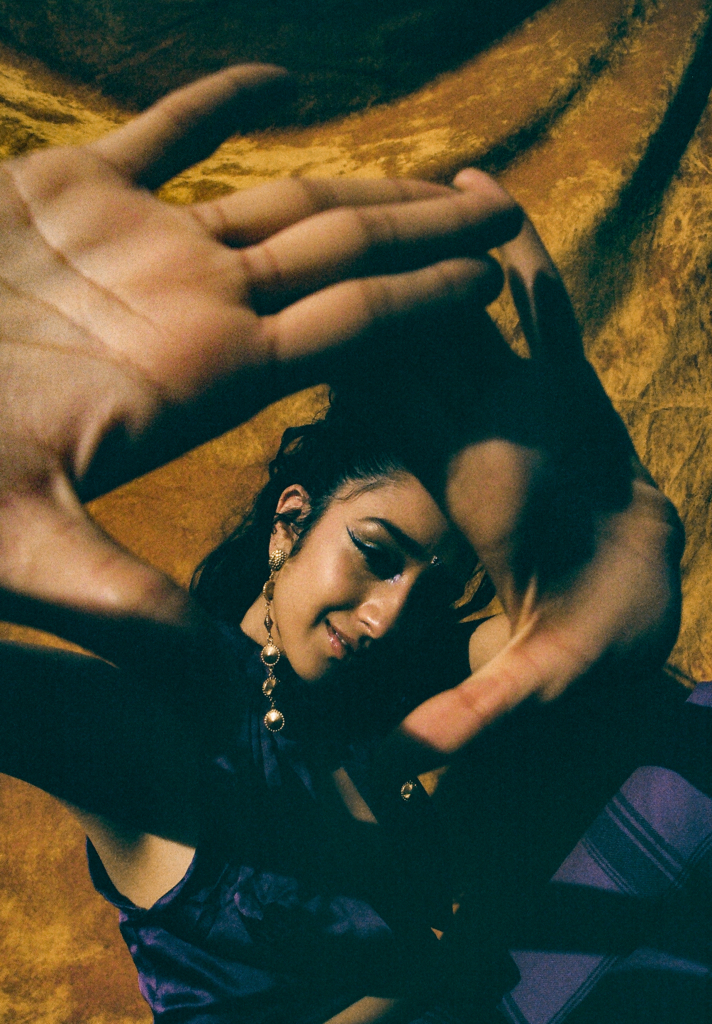
R: It takes an incredible amount of time and effort on part of the self. The fact that we even have to do so much labor to heal is an upsetting thing. Part of my self-care includes meditation and really being in touch with my body—taking care of it [it], putting the right food in [it], giving it enough time and space. I’m a big believer in getting enough rest. Those are a few ways I heal, and osteopathy is really crucial as well. There’s a lot of labor that goes into healing—a lot of fear and a lot of pain, a lot of embracing and looking at what happened in a very raw, vulnerable way, which we don’t really talk about in the healing process.
Informing people who aren’t survivors about how incredibly hard the healing process is would give them an insight to the toll it takes on the body, and how it can take literal years to heal and how it can afflict you everyday.
ZYG: How do you express your spirituality? Has it played a role in your healing process?
R: I come from a very devout Sikh family. I went to church every Sunday, sometimes multiple times a week. My grandparents would pretty much meditate all day. It was a way that they healed from an incredible amount of pain and trauma.
They went through the 1984 anti-Sikh riots. [Sikhism] is kind of the anchor for their life. Obviously religion was placed into my life (as in I didn’t “choose” it) but now I’m starting to incorporate many different factors of spirituality in my life, taking a bit from Hinduism, Buddhism, and Sikhism. Taking what I like, practicing what I believe in—it’s just a huge part of my life. It’s helped me grow and center myself.
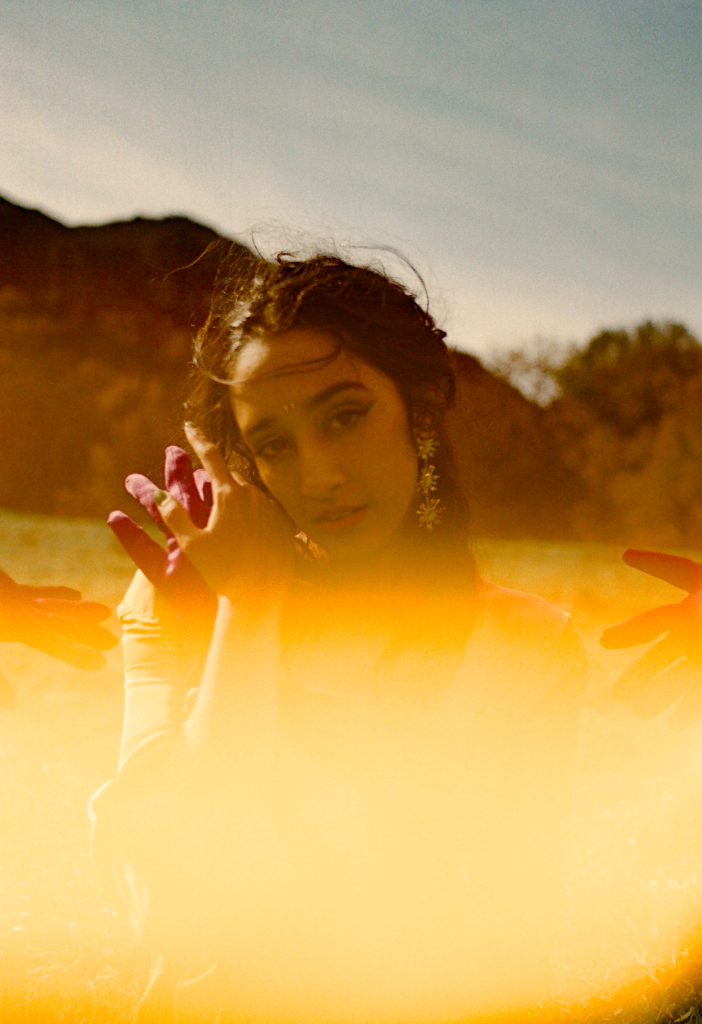
ZYG: In terms of that growth, as someone who creates her own music and has directed her own music videos, do you find the label “singer-songwriter” to be a limiting one?
R: Maybe for me, personally, because I just dabble in all types of art and the different processes behind it. I’m very much involved with the visuals and I like designing and drawing a bunch. I have a big hand in the creative direction of my music videos, so for me I would say that artist is a better umbrella term than singer-songwriter, because it’s just a small part of what I do.
ZYG: How would you describe your creative process?
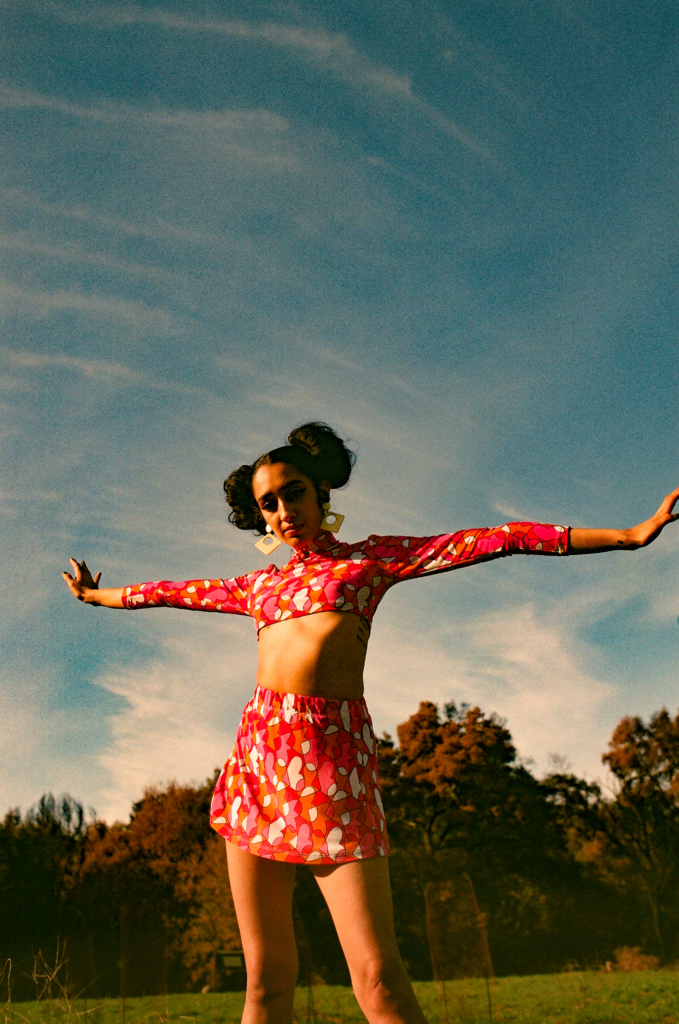
R: That’s a very loaded question [laughs]. I don’t even know where to begin! I’m very rigid. I have to create for a couple of hours a day, if I can help it, to feel like I showed up for the day, for my art. But also, very forgiving if I don’t. I think it’s just involved with forcing myself to draw that day or to write a song, or write anything. I kind of slowly collect ideas over time. When I write songs, it will start with a really simple beat, like bass, and even some keys. Generally the songwriting process happens really quickly, maybe within an hour. And then if we like song, we keep building on it, shaping it out for the next year or so. And then everything that surrounds it—it’s just a constant process of showing up and thinking about what you’re making.
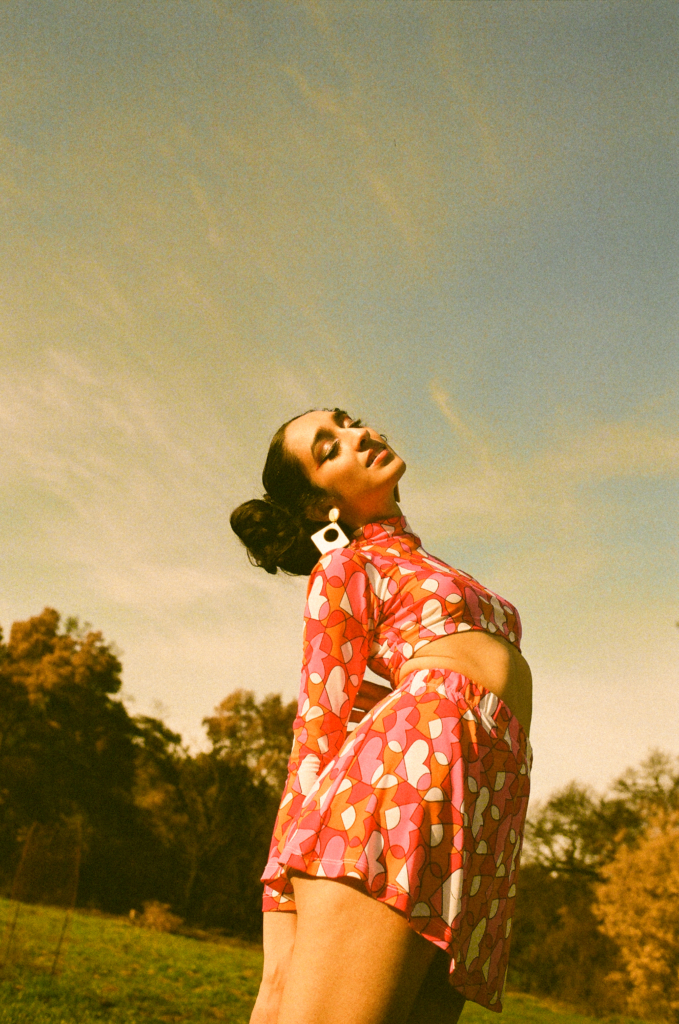
ZYG: Do you see music as an escape or as your own space? Or do you even think there’s a difference—that they’re one in the same.
R: I see music as my therapy. I’ll have sessions in the studio for this album where I’ve just been bawling the whole time or it’s just a really safe and calm space where I think. It’s always therapeutic, always helps me understand myself better.
ZYG: Obsession, per this issue’s theme, in whatever you context you take it. Thoughts?
R: I definitely think I’m an obsessive person towards my art, to another degree where I don’t think about much else. I should definitely have healthier boundaries and breaks from it [laughs]. Sometimes I try to explore why, and maybe it’s connected to some innate thing. In love, not so much, but maybe in [its] beginning phases. I’m definitely super romantic, but when we settle into a relationship I really enjoy and value space.
ZYG: I think of obsession as a pre-trust thing. When you don’t trust somebody, you obviously obsess. Once you trust them, you’re kind of in the endzone.
R: Wow. That’s looking at it in a really cool way—I completely agree. It’s all about building that trust, which I personally have had trouble with. I think the real trip is when you fall in love again.
ZYG: The “again” part is definitely a trip. To redirect this talk of love into that of self-love, what do you think is an authentic way to approach self-love amidst its clickbaity commercialization?
R: I feel you. I think as long as people are speaking from an authentic place, they probably don’t risk being clickbaity. It’s just about being honest with yourself and your experiences, and why you’re posting what you post. Is it to get more attention or some kind of monetary or social influence benefit? Or is it to help people. I think people can really feel when somebody is being honest.
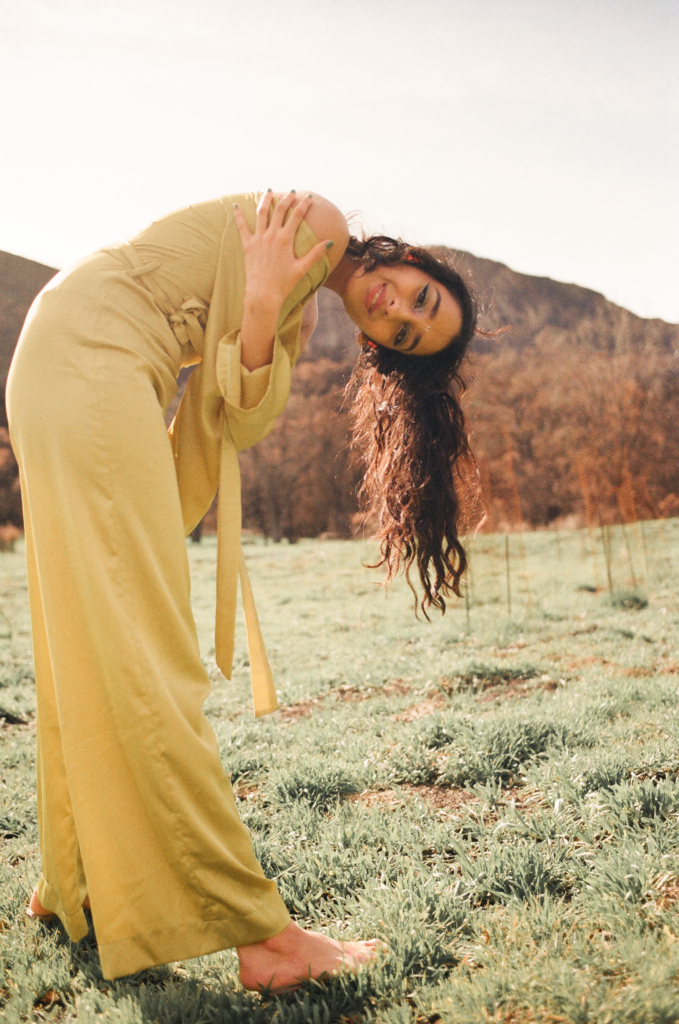
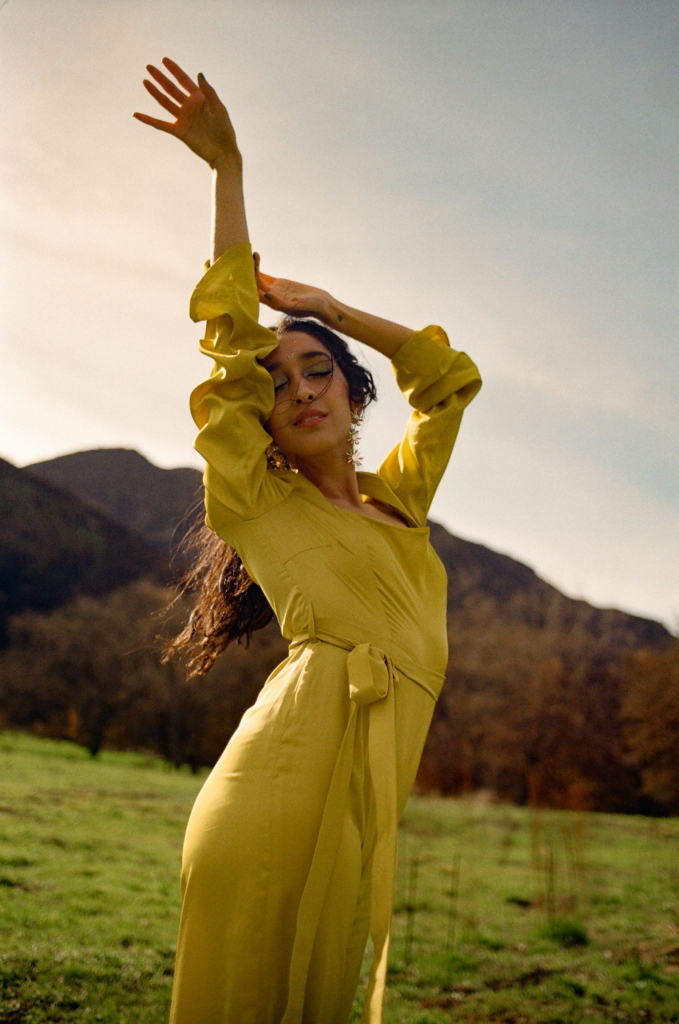
ZYG: So what do you think about Instagram, personally and career-wise? And I love yours, by the way.
R: [Laughs] Thank you! I mean, I definitely don’t think social media is neutral [laughs]. There definitely can be very negative aspects to it. It can be really dangerous to some people’s souls and the general public. It can dehumanize people sometimes and make them say something that they really wouldn’t say to someone’s face or if they had even just taken five minutes to talk to them. At the same time, it’s also this incredible platform to connect with people and gives communities so much more access to be heard. People who never would’ve had a chance to do that because they didn’t have enough money or enough power behind them to get their message out there, now can do that, which I really value. I think the internet kind of represents both yin and yang in a lot of ways. You have the power to choose what you want to engage in on a daily basis; it takes a lot of balance and humanity to have a good relationship with it.
ZYG: Agreed. Do you think of love as a noun or a verb?
R: Definitely a verb. You can say you love someone, but you have to back it up with action to mean it. A lot of people say it but don’t really show it [laughs]. The act of love is way more pure in a universal context. I just watched “Interstellar”, so I’m kind of in that mood. I’m a couple of years late [laughs], but it’s incredible.
ZYG: With all of this in mind, where do you think the difference in creative direction of your new album came from?
R: This album tells a story from start to finish. It’s made as a cinematic experience—all the songs lead into each other. It’s definitely a departure from “Shanti” emotionally. “Shanti” dealt with the surface of things, but it didn’t really delve deep into it, so I think that people will probably understand who I am and where my philosophy comes from with this album. I’m really excited. It’s really beautiful and 70’s psychedelia with the visuals.
ZYG: What’s next for you?
R: The album, maybe another project this year, and then definitely a tour and really cool merch! So be ready.

